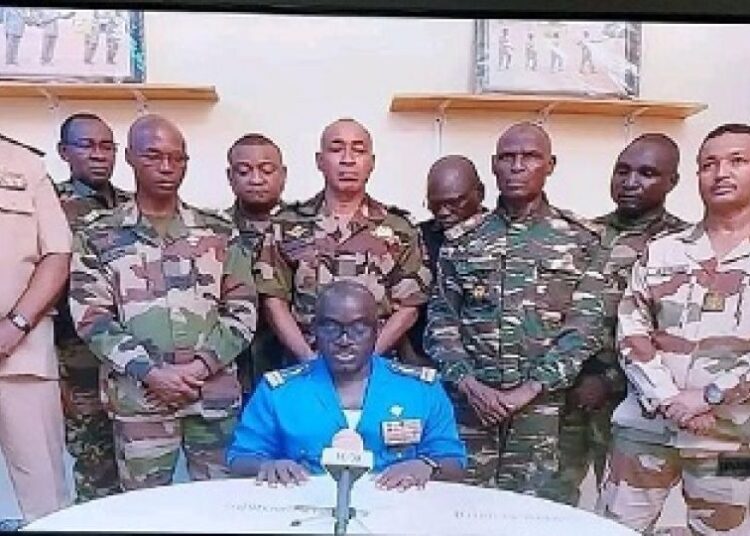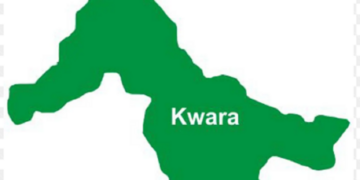On the of 26 July 2023, a military putsch occurred in Niger when the then commander of the Nigerien presidential guard, Abdourahamane Tchiani, aborted the incumbency of President Mohamed Bazoum who was elected by popular mandate as the 10th president of Niger in April 2021. Subsequent to this Unconstitutional Change of Government (UCG), on the 30th of July 2023, the Economic Community of West African State (ECOWAS) convened the 51st Extraordinary Summit of its Heads of States and Government where it deliberated on the situation in Niger after which it, amongst others, authorised various regime of sanctions against the military dictators in Niamey and called for the restoration of the ousted president back to office. The ECOWAS leaders also declared that ‘’in the event the Authority’s demands are not met within one week, take all measures necessary to restore constitutional order in the Republic of Niger. Such measures may include the use of force; To this effect, the Chiefs of defence staff of ECOWAS are to meet immediately’’.
The ECOWAS leaders maintained their non-compromising stance after a second extraordinary meeting on the 10th of August 2023 where they, amongst others, ‘direct the Committee of the Chiefs of Defence Staff to immediately activate the ECOWAS Standby Force with all its elements …and order the deployment of the ECOWAS Standby Force to restore constitutional order in the Republic of Niger’.
The unconstitutionality of the Tchiani-led putsch of 26 July 2023 under the Nigerien Constitution. As with almost all countries with democratic credentials, UCG is high treason in Niger. Article 1 of the 2010 Constitution of the Republic of Niger provides that:
‘’The State of Niger is an independent and sovereign Republic. All threat to the Republican form of the State and to the democratic institutions is a crime of high treason punished as such by the law.’
It is therefore incontrovertible that despite the success of the coup, the July 26 military intervention remains a against the Constitution of Republic of Niger.
By the same token, article 45 of the Protocol on Democracy and Good Governance, Supplementary to the Protocol relating to the Mechanism for Conflict Prevention, Management, Resolution, Peacekeeping and Security, 2001, provides that:
The implication of the combined reading of the common Article 45 to the two treaties above is that ECOWAS Member States have agreed amongst themselves, upon the decision of its heads of States and Governments, to take various actions in case where ‘democracy is abruptly brought to an end by any means’ and this, in the opinion of this writer, may include through forceful military intervention. By authorizing ECOWAS leadership to restore political authority in ‘’the event that democracy is abruptly brought to an end by any means’, ECOWAS Member States, including Niger, have given the legal authority to the Community to intervene in their respective countries if the criteria under the common Article 45 are met. It is therefore submitted that within the ECOWAS arrangement, forceful military intervention in the situation like the Niger’s is consistent with its Protocols. The ECOWAS military intervention in the Gambia in January 2017 to enforce the outcome of the 2016 presidential election in the country where President Yahya Jammeh lost to Adama Barrow but refused to hand over power to the latter, is a pertinent precedent on this.
iii. Principle of collective security & self defence
In interrogating the threatened ECOWAS military intervention in Niger, many observers have invoked the principle of non-interference as enshrined in the Charter of the United Nations to conclude that such intervention will be unlawful. Article 2(4) of the UN Charter states that:
“All Members shall refrain in their international relations from the threat or use of force against the territorial integrity or political independence of any state.”
Also, article 51 of the UN Charter empowers countries to engage in self-defence, including collective self defence against an armed attack. It provides that:
“Nothing in the present Charter shall impair the inherent right of collective or individual self-defence if an armed attack occurs against a member of the United Nations, until the Security Council has taken the measures necessary to maintain international peace and security.’
This writer opines that the ECOWAS proposed military intervention in Niger can also be legally justified under the principle of collective security. Article 25 of the ECOWAS Protocol Relating to the Mechanism for Conflict Prevention, Management, Resolution, Peace– Keeping and Security (1999), authorises ECOWAS leadership to deploy military in any of its Member States:
‘’…. In the event of an overthrow or attempted overthrow of a democratically elected government…’
On the 4th of August 2023, the deposed president of Niger, Mohamed Bazoum, invited ECOWAS to ‘restore constitutional order’’ in his country in line with the provision of Article 25 of ECOWAS 1999 Protocol and the ECOWAS planned intervention can be said to be pursuant to this request.
The Constitutive Act (CA) of the AU is the legal grundnorm under which AU member states agree to conduct the activities of the Union. The CA contains provisions on governance, rule of law, human rights, UCG etc. The provisions of the CA are further amplified and complemented by several other thematic treaties and pronouncements of the Assembly of Head of States and Communiques of other principal organs of the Union.
For the purpose of this article, the starting point is the provision of article 4(h) of the CA which explicitly states that, as a matter of principle, the:
‘’right of the Union to intervene in a Member State pursuant to a decision of the Assembly in respect of grave circumstances, namely: war crimes, genocide and crimes against humanity’’.
Similarly, article 23 of the AU Charter on Democracy, Elections & Governance provides that ‘any putsch or coup d’etat against a democratically elected government constitute an unconstitutional change of government and shall draw appropriate sanction by the Union’.
There have been several other AU declarations, Communiques and Statements reiterating the Union’s commitment to democracy, rule of law and zero tolerance for UCG. Indeed, in May 2022, the AU Assembly of Head of States, via a declaration, reiterated its ‘unequivocal condemnation of all forms of unconstitutional change of government in Africa and reiterate our zero tolerance in this regard.’
The main thrust of this work is to make the argument for the legality of any potential military intervention by ECOWAS in Niger although it does not necessarily mean that the writer is opposed to political resolution of the conflict. The argument that the failure by ECOWAS to obtain concurrence of the AU in its planned intervention in Niger makes any such intervention unlawful, flies in the face of the principle of subsidiarity between the AU and its RECs. ECOWAS member states recognise the immediate to long-term damages to its democratic development occasioned by the spate of UCG in the region and is now determined to take robust action against it.
This commendation of ECOWAS is anchored on several of its historic interventions in the region. The bloc has militarily intervened in Liberia, Sierra Leone, Guinea Bissau, Ivory Coast, Mali and The Gambia, to stabilise those countries in circumstances of UCG and other internal conflicts, to commendable acclaims.
Adebayo, an expert on international law, writes from Addis Ababa, Ethiopia.











